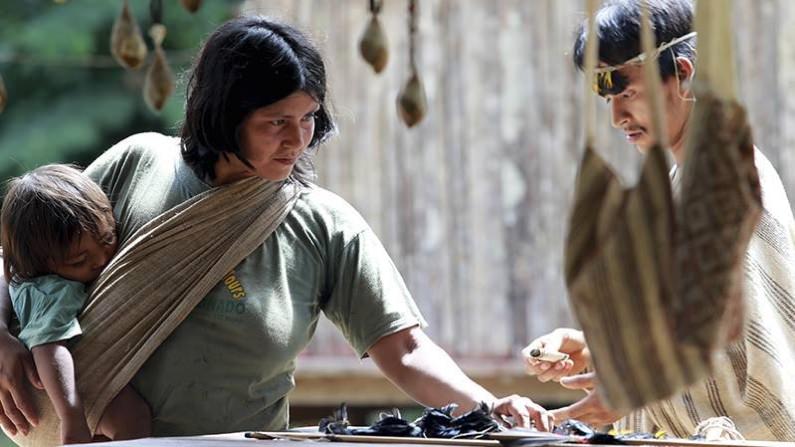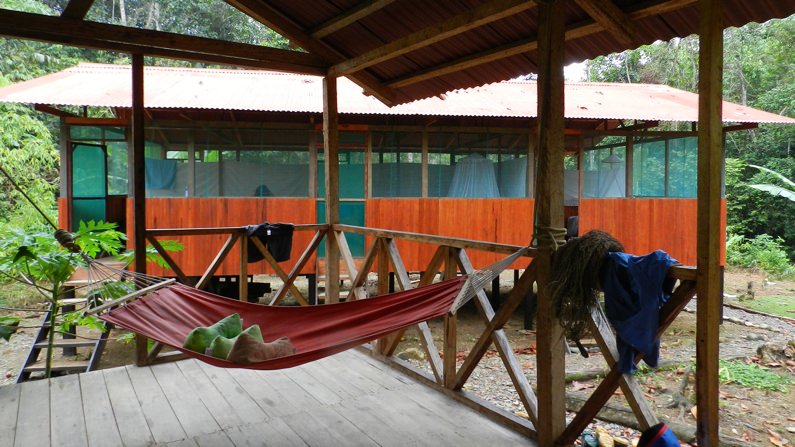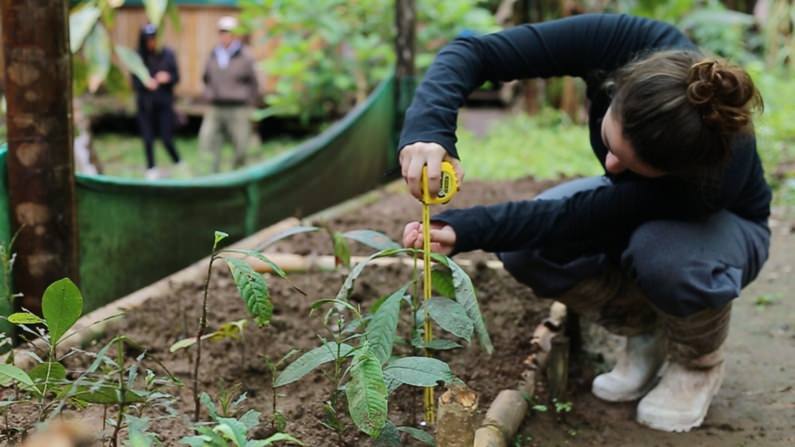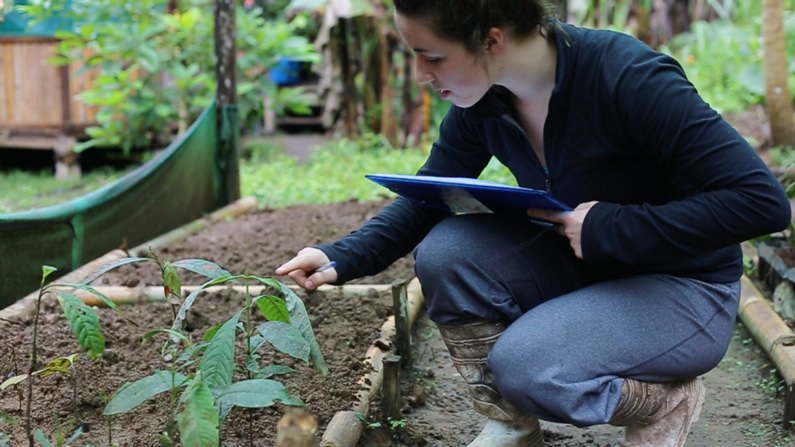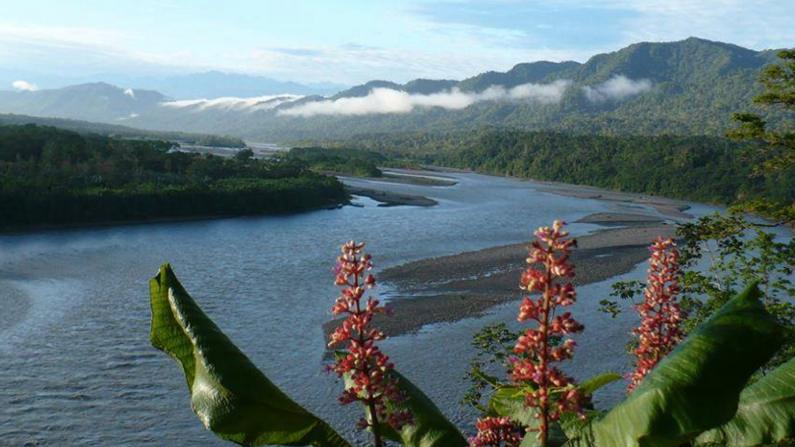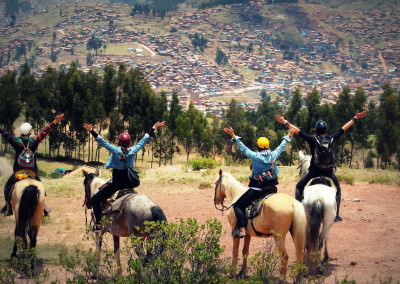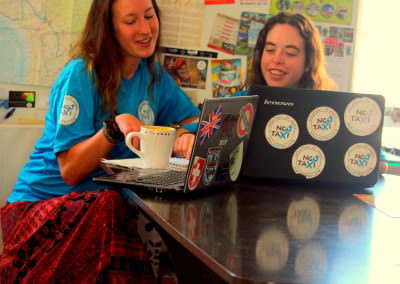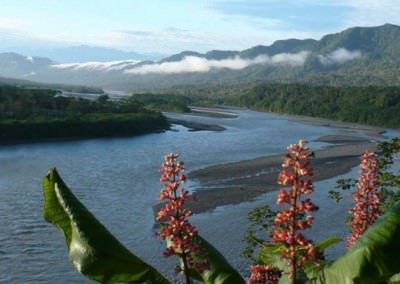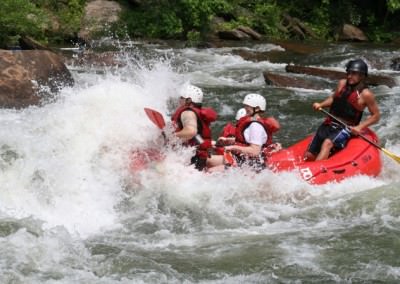


Amazon Jungle Camp: Reforestation and Wildlife Protection (Amazon Rainforest Peru)
Help us Plant Trees in the Amazon Rainforest. Let’s Protect our Planet’s Most Diverse Wildlife through Nature Conservation!
This adventurous Amazon Jungle Camp offers you the unique opportunity to experience the immensely beautiful, densely wooded, rich and green environment of the rainforest and provide a valuable contribution to its conservation. If you are interested in helping endangered wildlife and plant species and are looking to enjoy a simple, very much ‘back to basics’ life without electricity and using only fresh river water, then this is just the thing for you.
Leave modern society behind and enjoy an unforgettable, life-changing chance to protect rare natural wonders, reconnect with yourself and nature and also dedicate time to your own personal growth and evolution. This is your chance to live a life of absolute intimacy with nature!
DETAILS
Project Description
Problem:
Many species of wildlife and plants in the Amazon are endangered!
Collectors from North America and Europe pay exorbitant sums to poachers to smuggle large quantities of rare and exotic mammals, birds, insects and butterflies out of their natural habitat for ownership, medicinal and display purposes.
Capturing thousands of animals in this manner not only endangers the creatures themselves, but also the associated ecology and food chain of which they are part. If no action is taken to protect them the process will become unstoppable, which will ultimately affect the entire flora and fauna of the region.
Another problem faced in this area is the illegal logging of tree species (e.g. the Aguano tree). These trees are irresponsibly taken out of the jungle to be used as wood for construction or exported as timber, with no consideration of the effects on the environment and no replanting of trees in the areas that have been logged. Since government controls often become ineffective due to corruption or through the influential lobbying of the timber industry, it is only private initiatives like this that can provide the needed protection for the rare and precious species of the Amazon.
Solutions:
This project is located in the south eastern Amazon region of Peru, and focuses on the conservation and protection of a wide variety of species who are victims of these industries, both from the animal and plant kingdoms.
The owner of the property is a 70-year-old experienced researcher and biologist. He has set himself the goal of privately buying an area of 120 hectares to protect the threatened species in the region, in particular the large variety of rare and endangered butterflies. As well as protecting what is already there, the project aims to solve the environmental problems in the region, outlined above, through reforestation, education (of both volunteers and the local community), and constant data collection for scientists and biologists that come to study the area.
By participating in this project, you will help to protect flora and fauna, to support scientific studies and thus to preserve the heritage of the local indigenous people, such as the Matsiguenka and Harakmbut. This is the LAST CHANCE to save the fragile flora and fauna in this region, which is such a unique microclimate!
Objectives:
The aim of the project is the observation, survey, protection and research of the area’s species along with environmental conservation. You will also help with local education initiatives (e.g. at schools) for the protection of the flora and fauna of the rainforest.
Volunteer Responsibilities
Your primary volunteer duties at the camp will be to assist with the maintenance of the research area for biologists, researchers, university students and guests involved with the research programmes. In addition, you’ll find yourself working with many animal and plant species, and participating in the environmentally friendly planting of trees (afforestation) along the paths in the project area. You might also help with searching for medicinal plants, and harvest exotic fruits.
The owner of the property has delegated management of the operations for protecting the rainforest to his camp manager who will be your main contact person for the project and will allocate tasks, advise you and deal with your queries.
Volunteer tasks include:
- Assisting in the reforestation of the area, including weed control around the already planted trees.
- Creating and maintaining new ways to observe and research the flora and fauna.
- Agriculture-oriented work (e.g. planting and harvesting of organic vegetables and exotic fruits for the self-sufficiency of the project participants).
- Collecting seeds and plants.
- Sowing and caring for new seedlings.
- Taking inventories of macroinvertebrates on the Hospital river.
- Monitoring and taking inventories of butterflies, insects, reptiles, amphibians, birds and wild animals (for example, various monkeys, snakes, caimans, etc.).
- Species identification & classification (entomological surveillance).
- General maintenance work of the project site, including regular cleaning of communal areas.
- Sharing the responsibility of cooking with your fellow volunteers.
- Project monitoring and reporting.
- Assisting in educating the local community and visitors about the work that the project does.
The exact tasks you will be asked to carry out will depend on the current needs and priorities of the project as determined by the camp manager and NGO Taxi management. The tasks stated here are therefore examples of some of the possible types of activities you will be asked to do.
Working hours:
Your estimated working time is 30 hours per week (Monday to Saturday, about 5 hours a day). Much of it, however, will be performing exciting activities, and won’t feel much like work (e.g. nocturnal animal observation).
Location
Your journey will take you through the southeastern part of the Peruvian jungle into a unique microclimate zone. This is the only place able to host such a special and incredible diversity of endangered butterflies and other plants and wildlife, as it is the meeting point of many Amazonian ecosystems and regions.
Transportation
Once you arrive in Cusco, a member of the NGO Taxi team will collect and accompany you to your accommodation in the Peruvian Andes. They will also give you some tips about the area, people and culture (pickup and transportation are included). Local costs, such as the bus from your accommodation to the language school or private tours are not included (bus travel in Cusco, however, is very cheap; the total cost per week is about 10 USD).
From Cusco, the ancient Inca capital in the Andes, it is about half a day’s journey into the rainforest. The campsite itself is immersed in the deep green thicket of the rainforest amongst rare plants and also endangered forest trees. Currently, the road to the camp is only accessible by four-wheel drive. To reach the site itself you have to cross a small river. Depending on water levels, the campsite can be completely cut off by the river, but the construction of a bridge is planned.

Transport to the project site in the Amazon and back is included upon successful project completion. Once a week, you have the opportunity to get a ride to the nearest village with your camp leader for a donation of about 2 USD.
Accommodation and Food
During your Spanish course in the Andes you can decide to stay at the NGO Taxi headquarters, in a hostel or with a host family.
Once at the camp, you will be accommodated on the camp grounds in a romantic old wooden lodge, which is a haven in the jungle from the rest of the world. In addition to several beds, a small bathroom with a fresh river water shower, a hammock equipped common room and a small, cozy kitchen, the lodge is surrounded by an exotic garden. In the future, the camp leader would like to expand the project’s own garden using permaculture principles to generate sustainable biological products for the self-sufficiency of the project and campers.
The camp is a true paradise for adventurers. The extremely remote access to the camp, with the river on one side and the rising, densely forested hills on the other side of the forest provide protection in the form of a natural partitioning of the area against intruders and increasing tourism in Manu National Park. The project only allows selected guests and volunteers to visit in order to ensure preservation of the site. You can bathe and wash in the warm natural river and the “piscinas” (small river pools surrounded by stones). The river water is also used in the camp and must be brought in from the river in buckets.
Important: Please make absolutely sure to bring and use only natural organic and biodegradable soaps and shampoos in the Amazon!
Meals are included. All camp participants communally cook breakfast, lunch and dinner together. On Sunday you will have the opportunity to cook alone or to go to a nearby place with a restaurant.
Prerequisites
Professional requirements:
As a volunteer you don’t need any special, professional requirements, since there are plenty of activities for which no previous experience is needed. All you need is a sincere interest in nature, animals and plants and the desire to help out where needed. Theoretical or practical experience in forestry, agriculture, horticulture, and craftsmanship are greatly welcome.
This project lives through the help and participation of volunteers who maintain the research area for biologists, botanists, entomologists and students from all related disciplines. If you want to gain practical experience for your own study of biology, environmental science, geography or related disciplines in the rainforest, this project will offer you great scope and provide interesting content.
This project supports and encourages teamwork along with a great deal of flexibility, autonomy and initiative. If you are open and ready for it, you’ll learn how to deal with various aspects of daily life and be able to adapt to different fields of activity.
Generally, you should be ready to respond to changes and be able to deal with the unexpected for any work in South America.
Language requirements:
As you will be deep in the jungle during your project time, Spanish language skills are required, so that you can easily communicate with your project colleagues and local people on site. The Jungle Camp already includes a 20-hour intensive Spanish course in Cusco which will prepare you before your time in the rainforest. If you have very little or no Spanish language skills, you can also book additional hours at the language school before your camp starts.
Additional Information and Specials
Minimum age:
18 years
Start dates:
1st or 3rd Sunday each month.
(Individual arrival dates possible, surplus applies).
Length of stay:
Beginning at 4 weeks.
Immunizations:
Since you’ll be coming into contact with exotic animals, it is absolutely necessary that you have current immunizations. This includes, among others: yellow fever (certified), tetanus, typhoid, diphtheria, hepatitis A and B, and rabies. You should talk to a doctor about the various vaccinations you need before the start of your journey.
Please make sure that you have up-to-date vaccinations for all of these diseases. NGO Taxi cannot be held responsible for the provision of vaccinations for their volunteers. It is the responsibility of the volunteer to ensure that they have followed up-to-date medical advice.
Special conditions:
Volunteers should bring mosquito nets. In addition, you should definitely pack long-sleeved clothing (mainly for the evening). A detailed packing list will be sent with your personal preliminary documentation following your successful application with us.
Due to the remoteness of the terrain, there is no internet at the camp and no phone reception. There is, however, an internet cafe in the next village from where you can communicate and submit your weekly report to NGO Taxi. There is only very rarely electricity, and if so, it is mainly for charging technical equipment. Therefore embrace this opportunity to disconnect from the distractions of technology and completely immerse yourself in the calming, inspiring influence of nature and learn skills that you can only be exposed to in the jungle, e.g. working and living with a machete.
For the camp work itself, you will need rubber boots and work gloves that you can also buy cheaply in the country or on-site (they cost about 10 USD).
Sometimes you will find that you are volunteering with your project leader only, or as one of only two or three volunteers. At other times however, there will be large groups, so be prepared for variety in the people you will meet and work with.
But why not volunteer with your best friend?!
Tell us who you want to volunteer with and we will arrange your volunteer experience for both of you.
NEW!
The project has begun a new environmental workshop for local pupils, aimed at further educating them about the importance of caring for the environment and at implementing a future vision of environmental sustainability for the valley in which the project is located. We need enthusiastic volunteers to help in delivering this workshop! The workshop will include lectures, discussions, group work and individual tasks. Please note, it will only run if there are sufficient pupils interested (15 minimum).
There is an optional Amazon expedition with survival training available at the end of your camp stay (only if there are a sufficient number of participants). For more information please refer to the section “Free Time Activities” below.
Included Services:
- Food and full board for communal cooking (also vegetarian or vegan).
- Return pickup service to and from the airport/bus station in Cusco.
- Welcome dinner for all camp participants.
- 20-hour intensive Spanish course.
- Return transportation to and from the camt (on successful completion of the project).
- 24-hour assistance from your coordinator in Cusco.
- 24-hour support from your camp leader in the Amazon.
- T-shirt, pre-arrival pack and information materials.
Excluded Services:
- Amazon expedition/environmental workshop.
- International or national flights.
- Local buses to your language school in Cusco (10 USD per week).
- Ride to the nearest village with internet connection (2 USD once a week).
- Working equipment (rubber boots and work gloves: 10 USD).
- Personal spending.
- Any additional items not listed in the ‘Included Services’ list.
Free Time Activities
- Mountain biking.
- Rafting.
- Hiking.
- Paragliding.
- Visit to Machu Picchu.
- Dance classes.
- Cooking classes.
- City tours.
- Ziplining.
There are many many things to do at the camp! The national park it is located within is a breathtaking natural spectacle. There are many local villages and towns to explore, giving you a taste of a totally different way of life, and the owner of the property would be very happy to show you his fascinating insect collection as well as explain some of the biology and science behind the rainforest. If you wish, you can also participate in a special one week expedition* into the vast depths of the Amazon.
* This one week expedition requires additional preparation. Included are two night walks with camping and survival training (!) in the rainforest. As you need to be well acclimatised to the climate conditions in the tropical rainforest, the expedition always takes place at the end of the camp stay. The number of participants is minimum 15 persons. Please enquire during your application for availability and costs.
Animal Shelter
Included Services
- Food and full board for communal cooking (also vegetarian or vegan).
- Return pickup service to and from the airport/bus station in your arrival city.
- Pre-arrival pack.
- Welcome dinner for all camp participants.
- Complimentary t-shirt.
- FREE 20 hour intensive Spanish course.
- Return transportation to and from the camp (on successful completion of the project).
- 24 hour support.
Pricing
Official Camp dates:
Start dates every 1st/3rd Sunday of the month
€ 1479,00 – 1st month
€ 1429,00 – 2nd month
€ 1379,00 – 3rd month, and after
Individual camp dates:
+ € 150,00 – Start your placement any Sunday of the month
+ € 250,00 – Chose your own start dates and change them up to 3 times before your trip.*
*Last date change up to 3 weeks before your departure.

